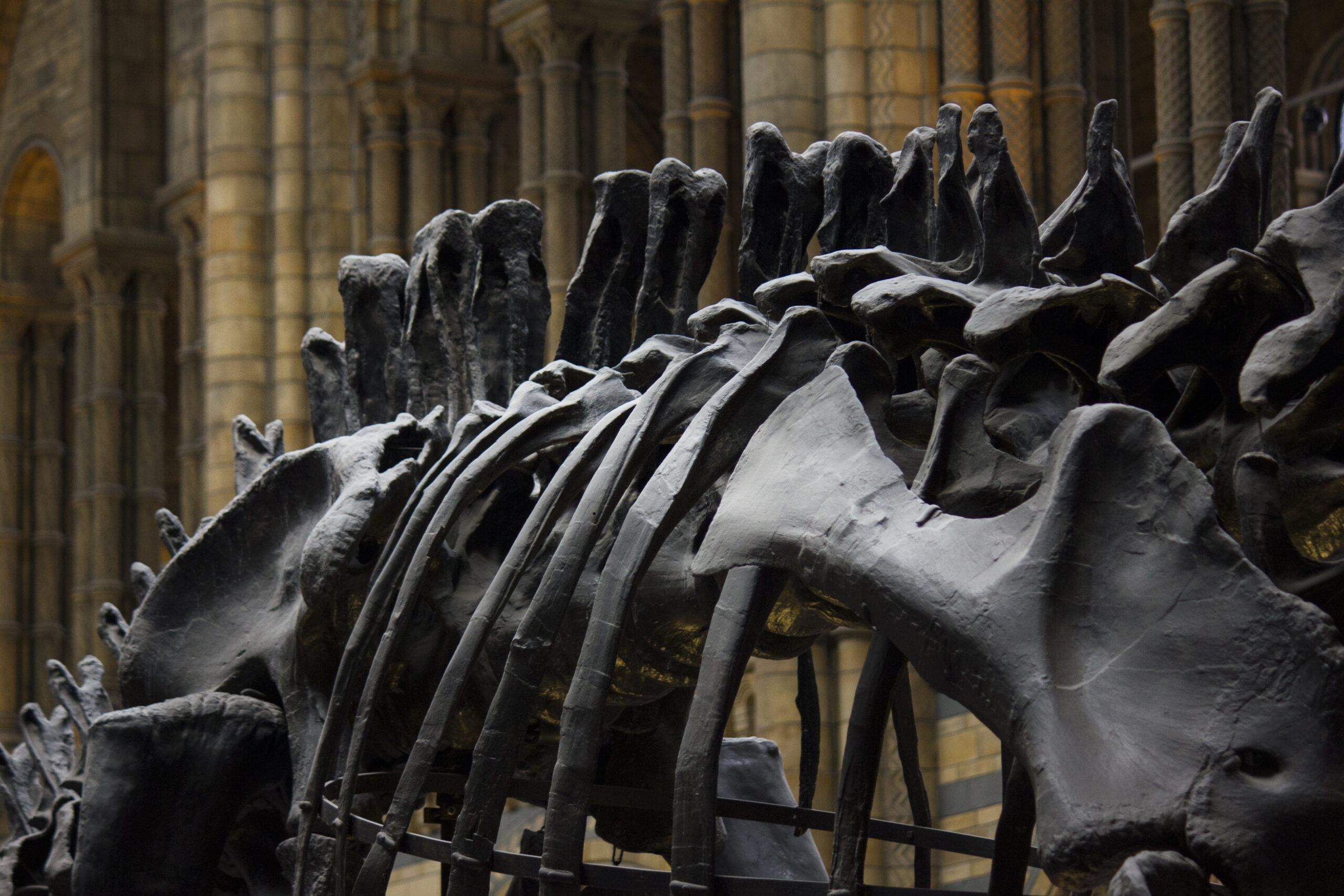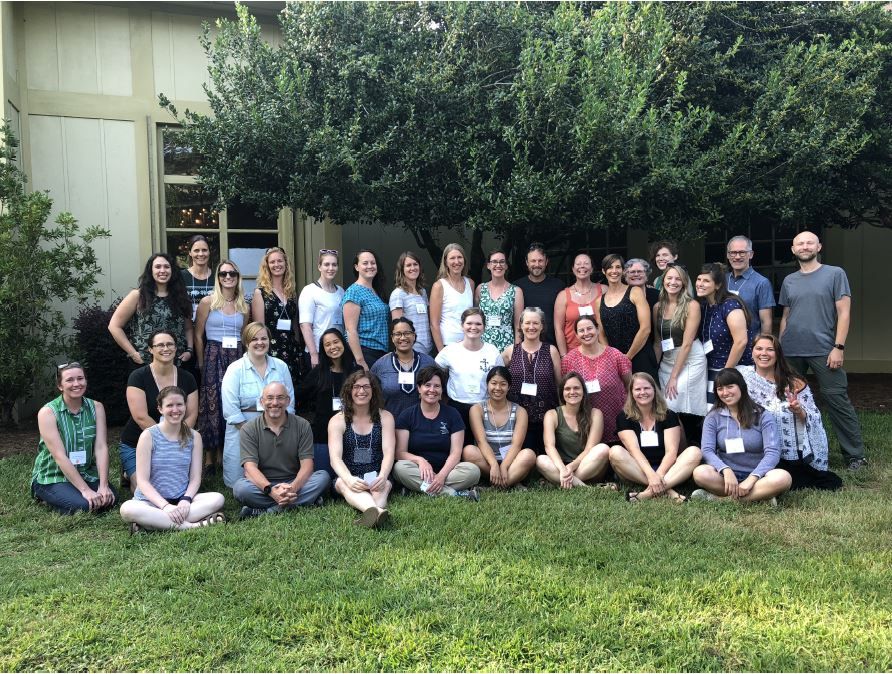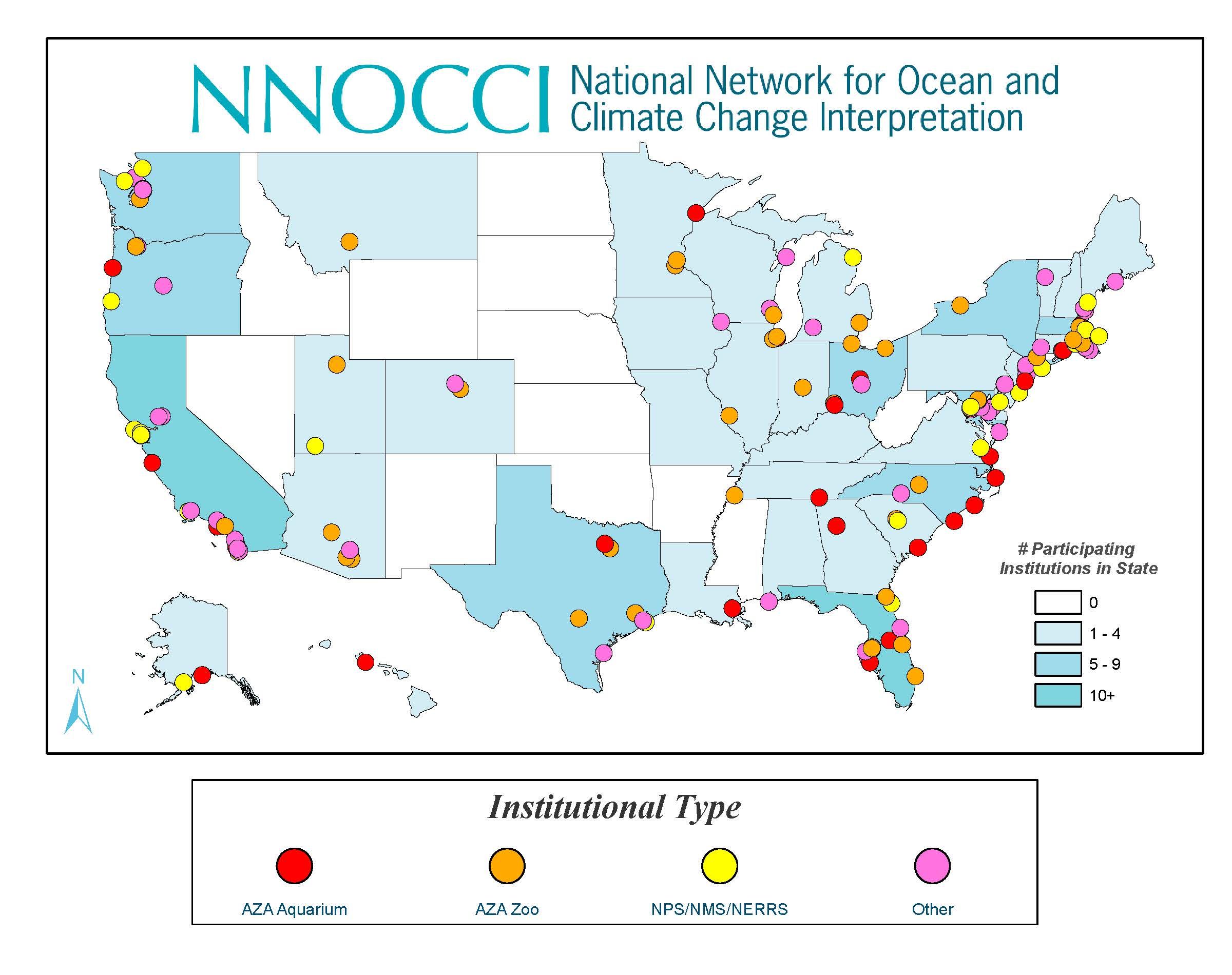Museums Mobilizing Climate Action

(Excerpted from a commencement speech for the Harvard Extention School Museum Studies Program)
The Role of Museums In Tackling Climate Change
At the New England Aquarium, I spend most of my time working at the intersection of museums and sustainability. About 10 years ago, we realized that the biggest problem facing the oceans was climate change. Yet, almost no one was talking about it in aquariums, zoos or museums. So, with a series of federal grants, we started working on the challenge of how to get more people understanding, talking about, and acting on climate change.
About 70% of Americans think climate change is happening now. Yet, 64% of Americans discuss climate change only occasionally or never. If you want to change policy, people need to be talking about the issue to get it on the agenda. So this is a big problem!
We realized that museums have a large reach and are highly trusted. About 61% of Americans regularly visit museums and represent a wide swath of society, so if we can reach them, we can have a really big impact. We began to research what effective climate communication looks like, and we began to build a national network of colleagues, using common language to change the public conversation.

Learning Leadership Skills for Climate Communication
We started bringing together informal educators, along with early career scientists, to learn together in Study Circles through an organization called the National Network for Ocean & Climate Change Interpretation. Across a series of blended in-person workshops, online training, and self-directed practice over 4-6 months, pairs of educators learn the basics of climate science, relevant social science, and practice strategic framing techniques while building a network with their peers.
The ripple effects of this work have been surprisingly extensive, with lasting impacts documented on trained informal educators; their colleagues, friends and families; and the millions of visitors they engage with. These impacts include improved understanding of the causes of and challenges created by climate change, greater hope about addressing climate challenges in their communities, and increased motivation to engage in civic climate action.
These impacts are long-lasting. In follow-up surveys conducted six months later, visitors report increased confidence in talking about climate change, belief that talking about climate change with friends and family makes a difference, and – perhaps most importantly – participation in civic action to reduce climate change.

A Nationwide Movement To Turn The Tide
With 170 aquariums, zoos, and science/nature centers in 38 states now in our network – including states such as Texas, Florida, North Carolina, and Utah – we have begun to build a national movement. We believe that together we can train enough voices in proven communication techniques to shift the national conversation about climate change and engage more people in civic climate action.
Museums can serve as conveners and facilitators, bringing together people to discuss important social and environmental issues. And, they can help to build relationships and trust both within and beyond their walls. In an era where partisanship has increased and trust in many institutions has decreased, the general public continues to view museums as trusted and unbiased. By building on careful empirical research to understand what people already value, believe, and understand, we can then design communication strategies that help translate complex science in a way that allows people to examine evidence, make well-informed inferences, and embrace science-based solutions.
By using scientifically accurate, tested language, we can make it easier to understand the complexity of earth systems. By connecting to widely held values – such as protection and responsible management – we can help people understand what is at stake and how oceans and climate connect to their daily lives. By helping people understand human impacts, we can help them see how their involvement makes a difference. And, by emphasizing actionable, community-level solutions, we can help to motivate civic climate action.
More Blog Posts
 Attention Environmental Advocates: Avoid ‘Cute Critters’ and other Communications TrapsAttention Environmental Advocates: Avoid ‘Cute Critters’ and other Communications Traps August 09 2016 This is the second in a series about framing ocean and climate change. A fuzzy polar bear cub against an expanse of melting snow. A seal pup slicked in oil. A newborn orangutan clutching its mother’s breast as she swings through a disappearing [READ MORE]
Attention Environmental Advocates: Avoid ‘Cute Critters’ and other Communications TrapsAttention Environmental Advocates: Avoid ‘Cute Critters’ and other Communications Traps August 09 2016 This is the second in a series about framing ocean and climate change. A fuzzy polar bear cub against an expanse of melting snow. A seal pup slicked in oil. A newborn orangutan clutching its mother’s breast as she swings through a disappearing [READ MORE] Cut through Confusion with Appeals to Protection and ResponsibilityCut through Confusion with Appeals to Protection and Responsibility September 07 2016 This is the third in a series about framing ocean and climate change. Advocates and experts are familiar with common—but often untrue—tropes about our environment. How can we cut through them and communicate in a way that deepens understanding about the complex [READ MORE]
Cut through Confusion with Appeals to Protection and ResponsibilityCut through Confusion with Appeals to Protection and Responsibility September 07 2016 This is the third in a series about framing ocean and climate change. Advocates and experts are familiar with common—but often untrue—tropes about our environment. How can we cut through them and communicate in a way that deepens understanding about the complex [READ MORE] To Frame Climate Change, Lead with a Researched Value—Not a “Rogue” OneTo Frame Climate Change, Lead with a Researched Value—Not a “Rogue” One January 20 2017 This is the sixth post in a series about framing ocean and climate change. So, you want to motivate the public to take action to address climate and ocean change? One of the most important communications moves you can make is to open with a broad statement [READ MORE]
To Frame Climate Change, Lead with a Researched Value—Not a “Rogue” OneTo Frame Climate Change, Lead with a Researched Value—Not a “Rogue” One January 20 2017 This is the sixth post in a series about framing ocean and climate change. So, you want to motivate the public to take action to address climate and ocean change? One of the most important communications moves you can make is to open with a broad statement [READ MORE] My Community is My Hope #100HopefulDaysMy Community is My Hope #100HopefulDays Sarah-Mae Nelson, MS, CIG/CIT, February 03 2017 Today I turn 37 years old. This seems like an impossible number. In my mind, I am a vibrant 21-year-old eager to make the world a better place. I see opportunities to make a positive difference everywhere. I am young, I am empowered, and I am unstoppable. In [READ MORE]
My Community is My Hope #100HopefulDaysMy Community is My Hope #100HopefulDays Sarah-Mae Nelson, MS, CIG/CIT, February 03 2017 Today I turn 37 years old. This seems like an impossible number. In my mind, I am a vibrant 21-year-old eager to make the world a better place. I see opportunities to make a positive difference everywhere. I am young, I am empowered, and I am unstoppable. In [READ MORE] National Network for Ocean and Climate Change Interpretation (NNOCCI) Impacts After 5 YearsNational Network for Ocean and Climate Change Interpretation (NNOCCI) Impacts After 5 Years by Sarah-Mae Nelson, MS, CIG/CIT, February 13 2016 Since 2009, the National Network for Ocean and Climate Change Interpretation—better known as NNOCCI—has been a collaborative effort to raise the discourse around climate change and ocean acidification. Led [READ MORE]
National Network for Ocean and Climate Change Interpretation (NNOCCI) Impacts After 5 YearsNational Network for Ocean and Climate Change Interpretation (NNOCCI) Impacts After 5 Years by Sarah-Mae Nelson, MS, CIG/CIT, February 13 2016 Since 2009, the National Network for Ocean and Climate Change Interpretation—better known as NNOCCI—has been a collaborative effort to raise the discourse around climate change and ocean acidification. Led [READ MORE]